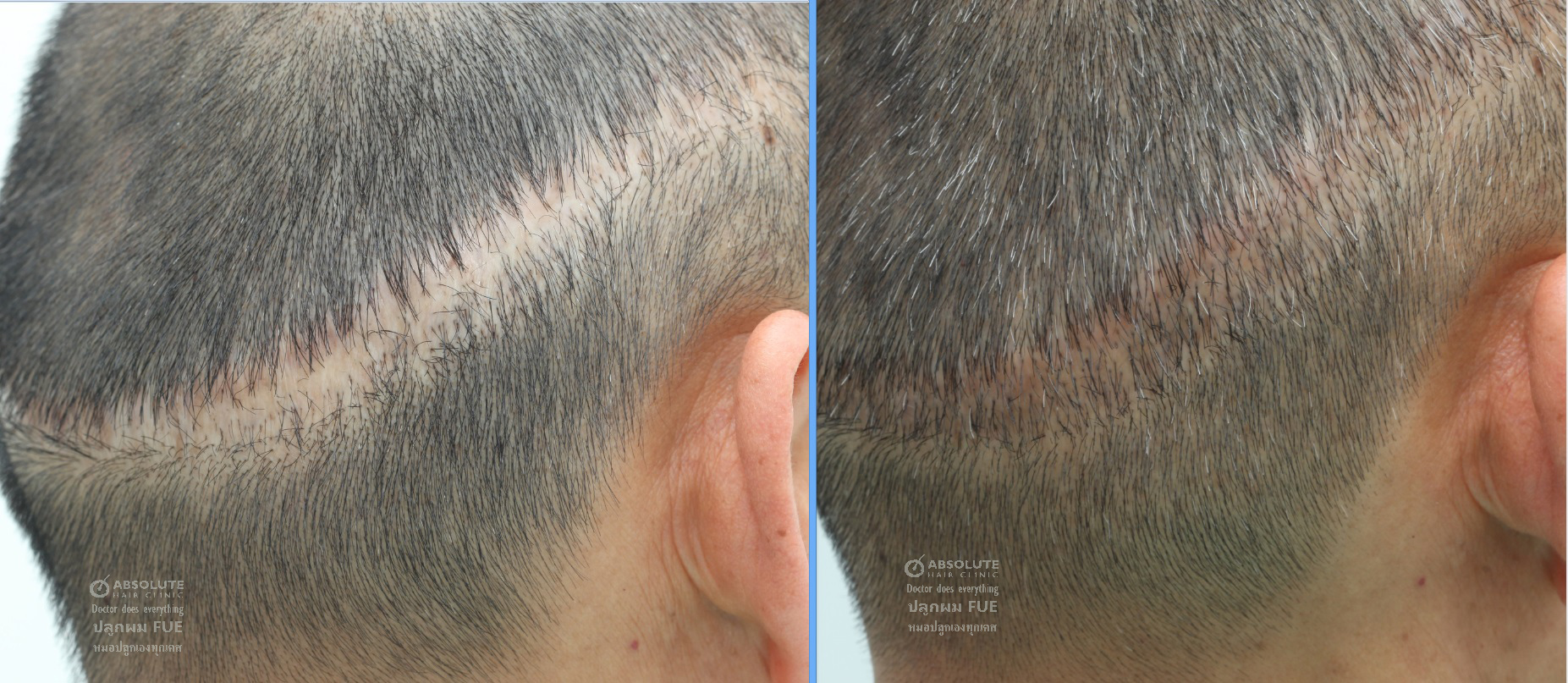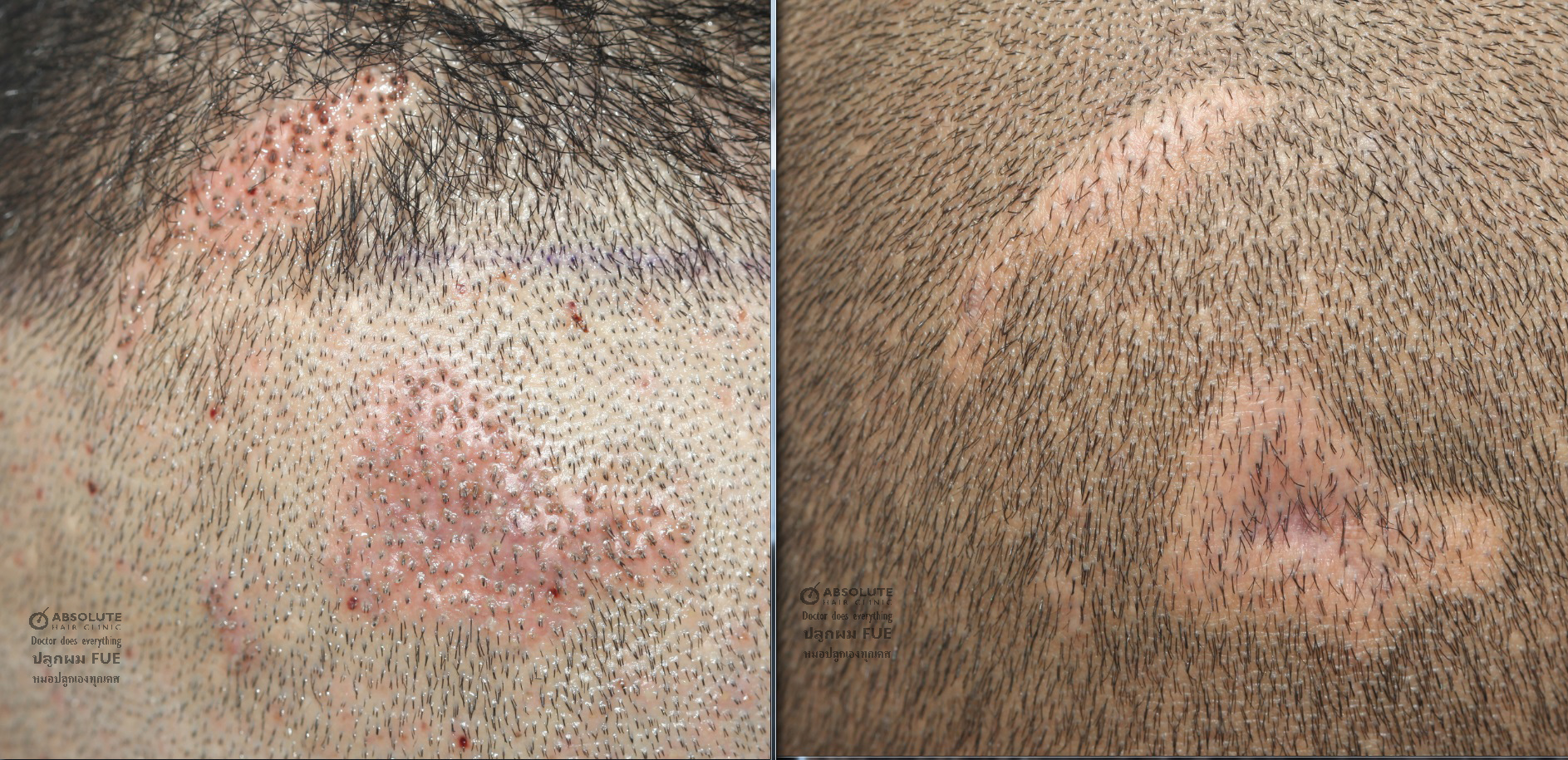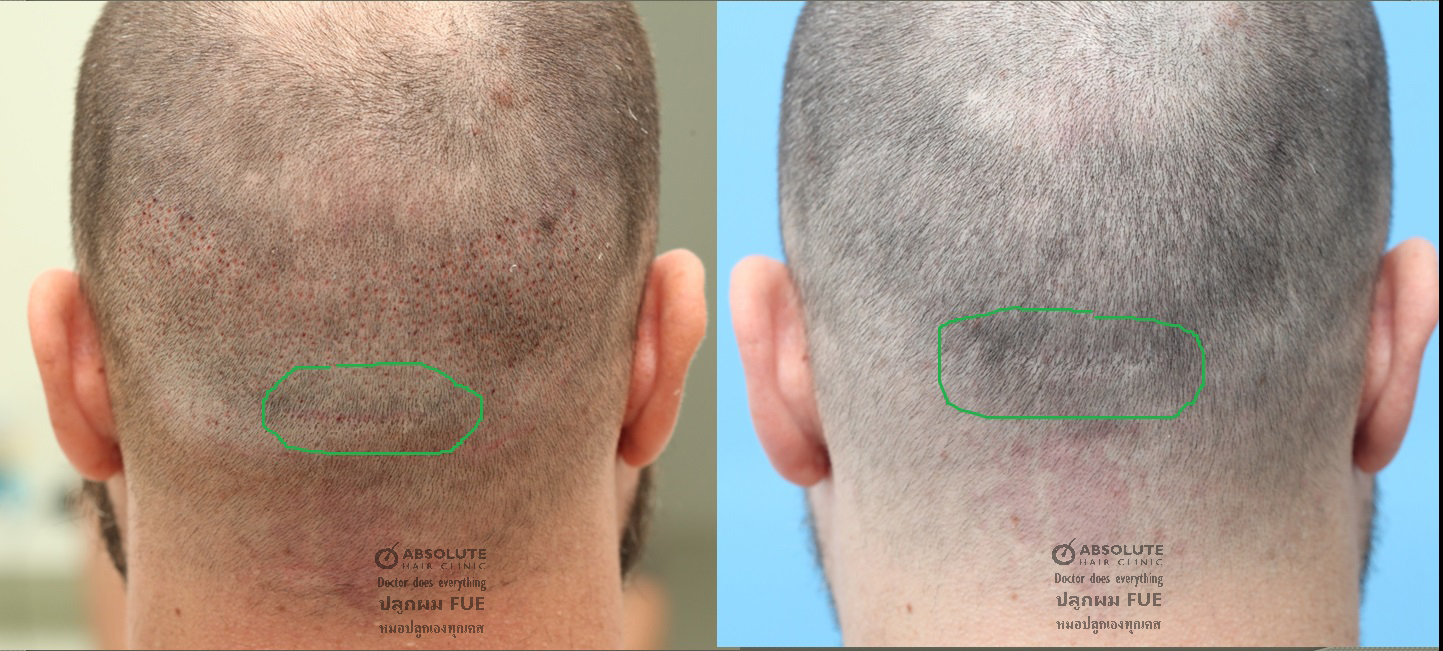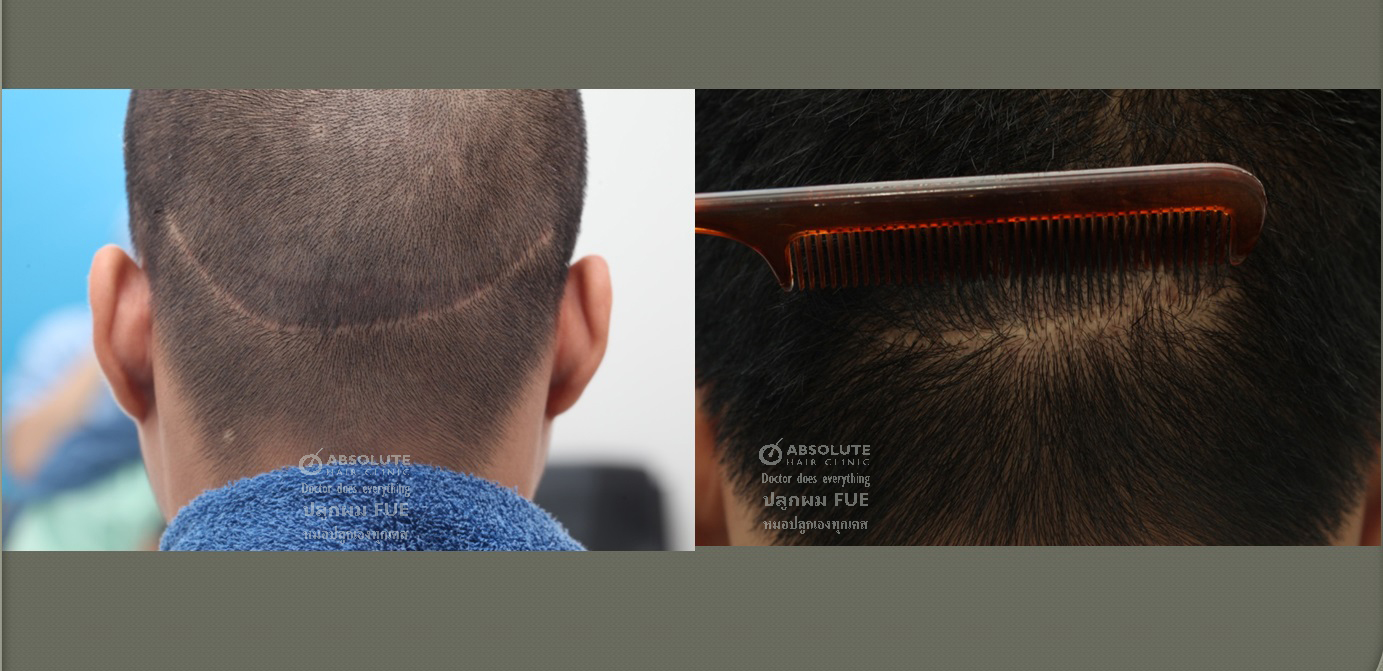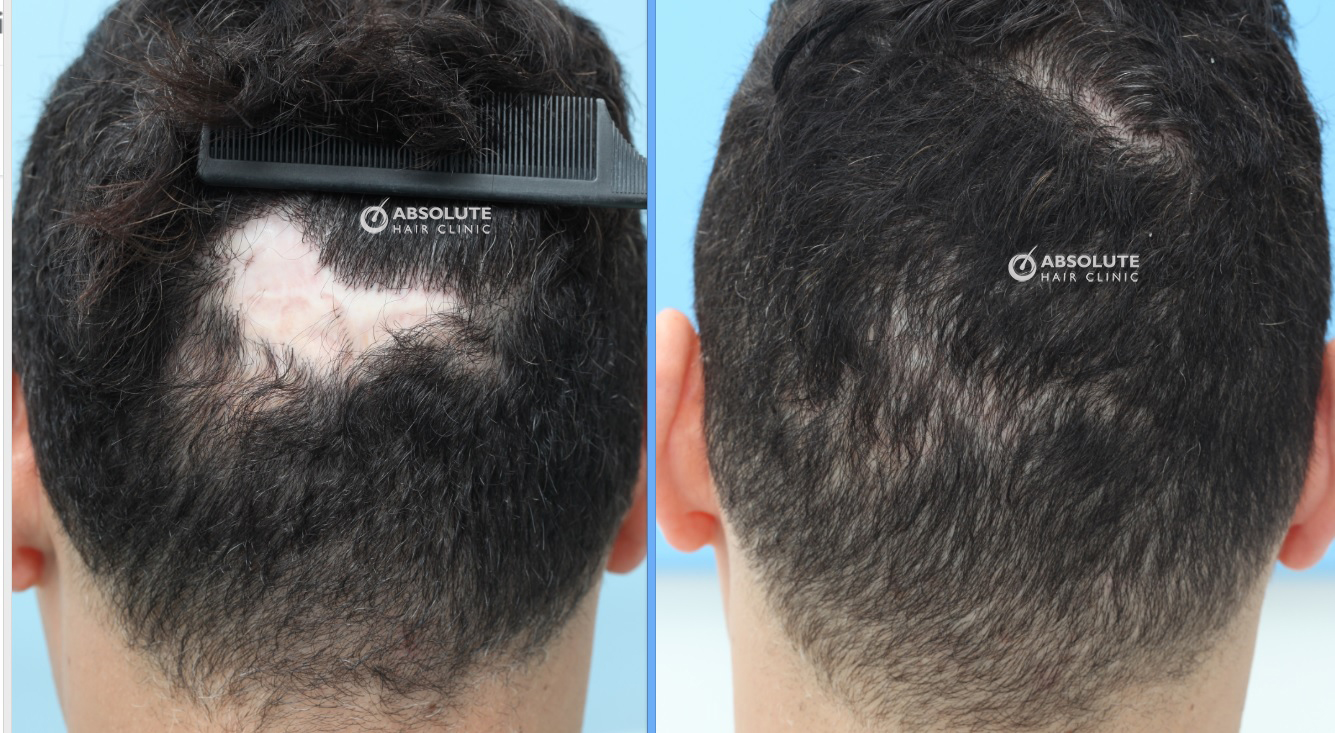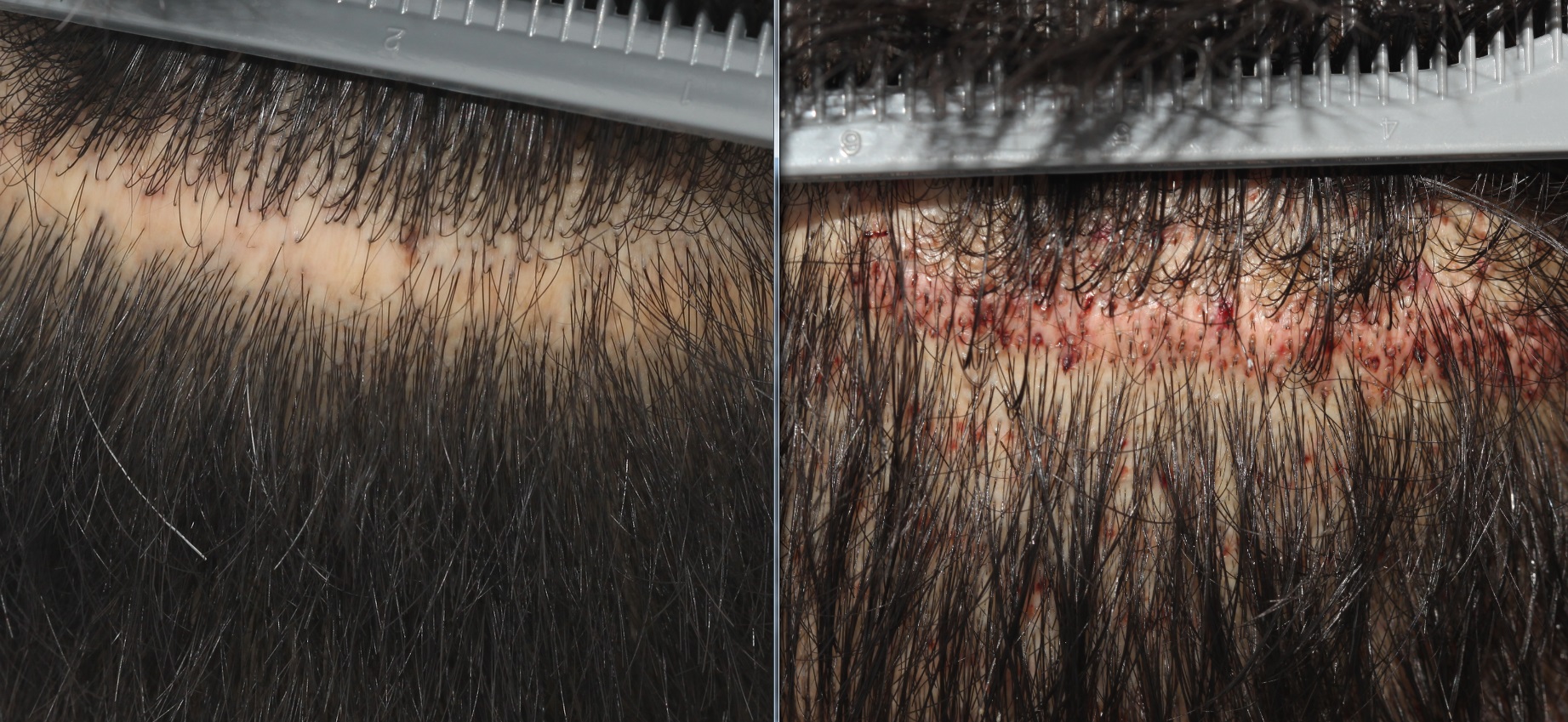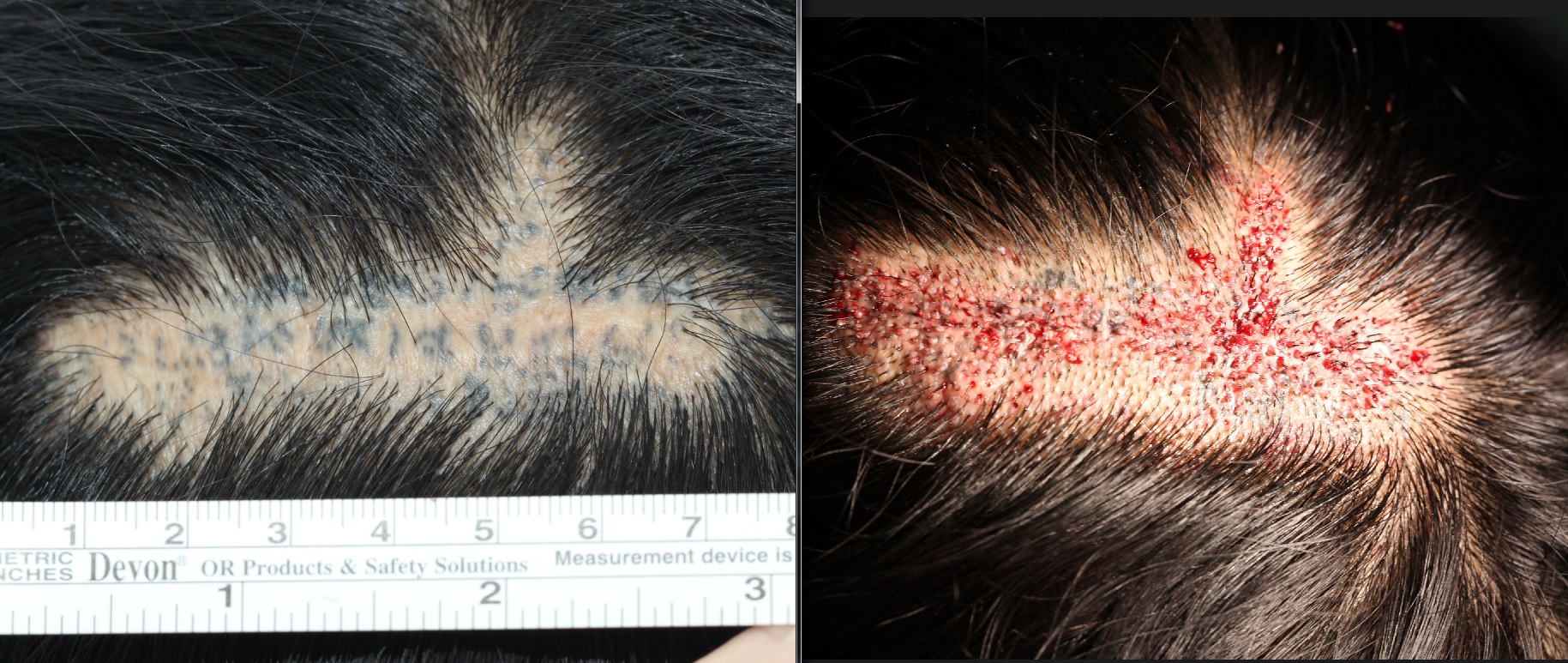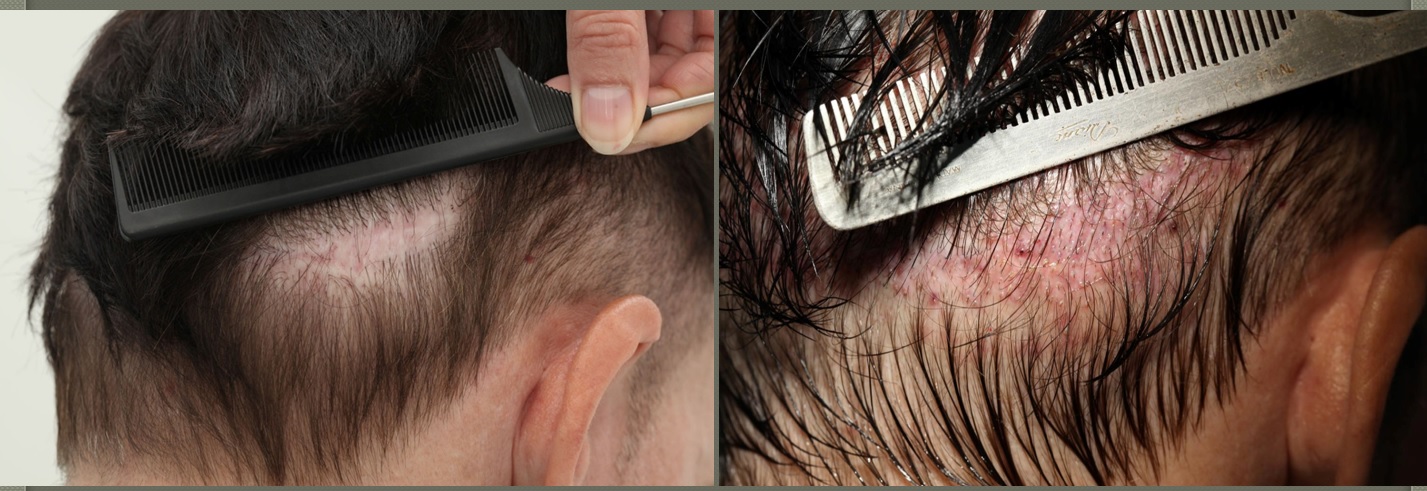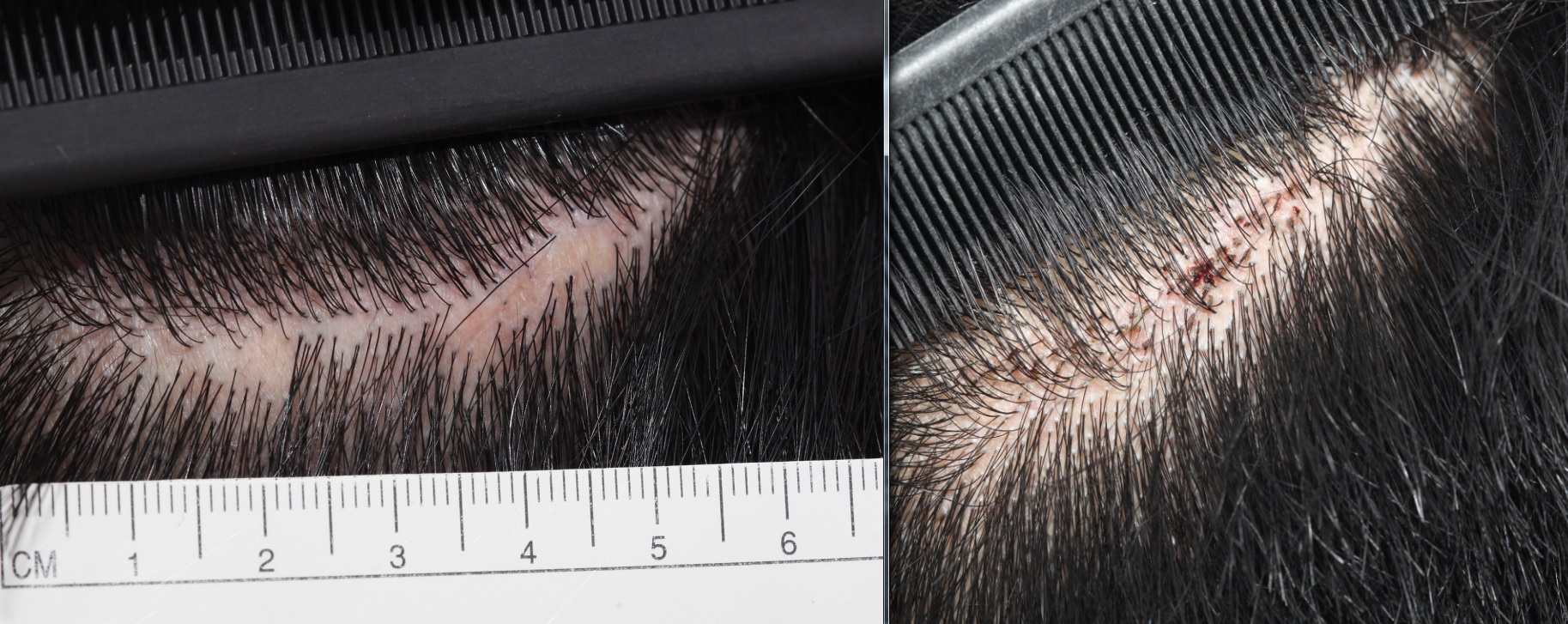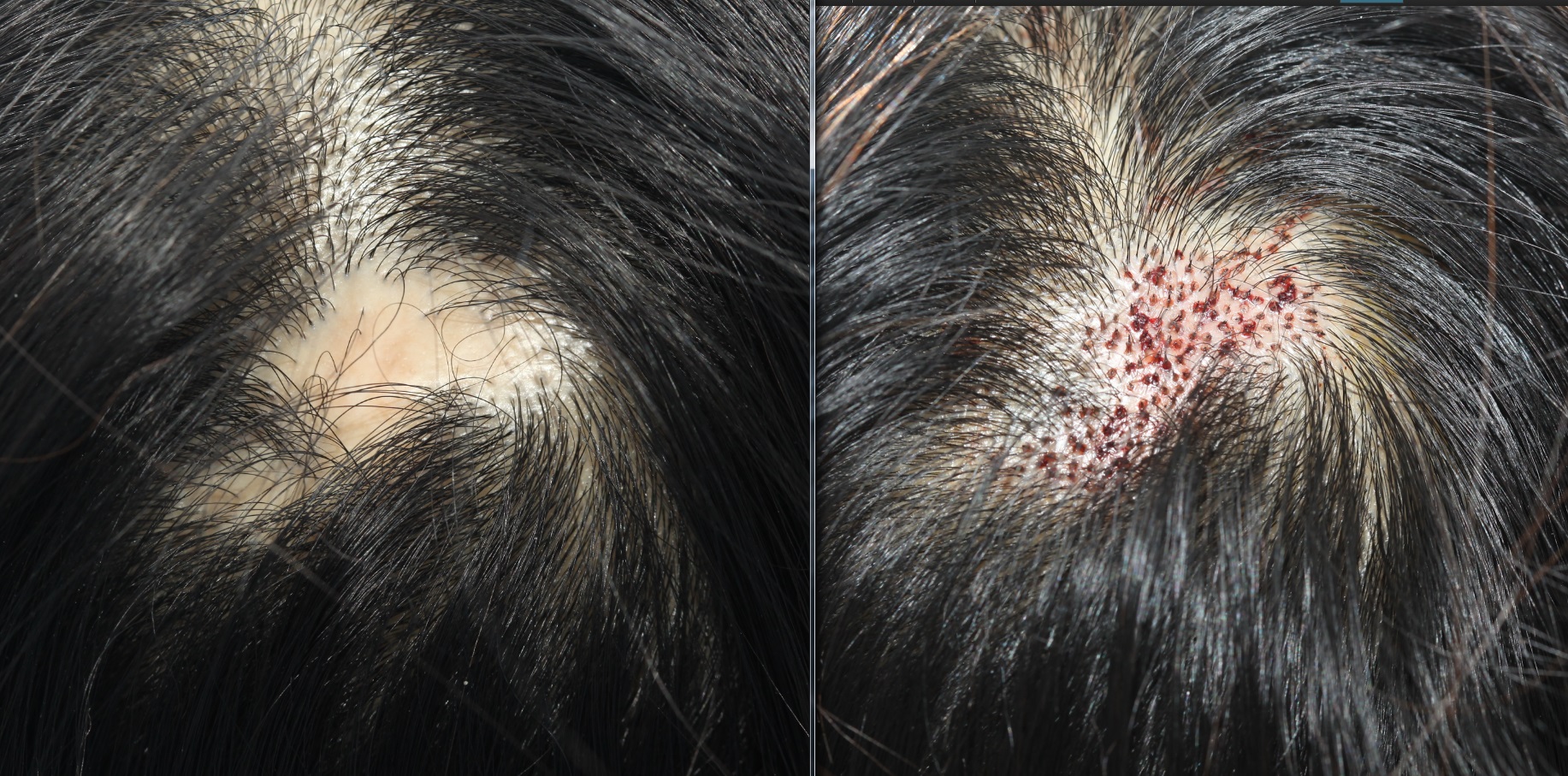FUE Hair transplantation in Scarred scalp
Is hair transplantation an option to consider for the scarred scalp?
The answer is "Yes" in the majority of cases. The method of hair restoration is usually hair transplantation. Skilled, experienced physician hair restoration specialists have been very successful in transplanting hair to scarred areas of the scalp.
Sometimes the scarred area can be reduced in size by surgical excision and repair, leaving a smaller area that requires hair transplantation. This is an option that the patient and physician should discuss in detail before it is undertaken.
Hair restoration in the scarred scalp is not undertaken lightly. It requires careful examination of the scalp and consideration of numerous factors that can influence the feasibility and outcome of surgical hair restoration. These factors can include:
- Underlying chronic inflammatory diseases that affect the scalp, such as lupus erythematosus, lichen planus or localized scleroderma, may be responsible for scarring alopecia. Most physician hair restoration specialists do not recommend hair transplantation if the disease is active; a minimum of two years of disease inactivity is advised before hair transplantation is undertaken.
- Scalp blood supply in a scarred area. A very limited and compromised blood supply, due to injured and missing blood vessels, might make surgical hair restoration difficult or even impossible to carry out.
- Scalp thickness in the area that is to undergo surgical hair restoration. Different types of scars have different properties in regard to thickness and friability (the ease with which the tissue tears or crumbles). Very thick (hypertrophic) scar tissue may limit accessibility to underlying blood vessels. Very thin (atrophic) scar tissue may be too thin to hold transplanted follicles.
- Underlying surgical repair. A person, who has had surgical repair of a head injury, or repair after neurosurgery, may have a metal plate underlying the scar tissue. An underlying device such as a plate could be compromised by hair restoration surgery, or become a focus for postoperative infection.
After all necessary tests and physical examination, it is likely that hair restoration of the scarred scalp can be undertaken and have a successful outcome.
In the unlikely event that hair restoration cannot or should not be undertaken, the patient and physician hair restoration specialist can discuss hair prostheses for coverage of the scarred scalp.

